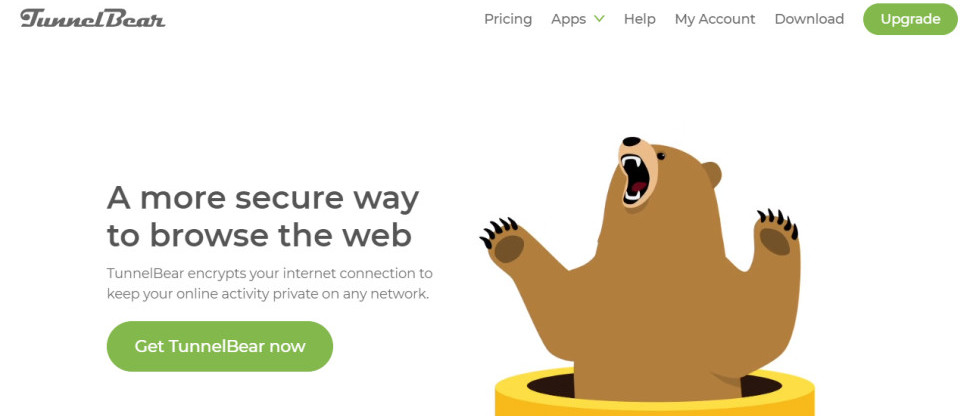TechRadar Verdict
While it's easy to use and surprisingly speedy for a free VPN, the tiny 500MB per month data limit means TunnelBear will only work for the very lightest of VPN users.
Pros
- +
Easy to use
- +
Decent speeds
- +
More in-depth VPN audits than anyone else
- +
Unblocks US Netflix
Cons
- -
Only 500MB data per month
- -
Some connection drops during our review
- -
Few configuration options
Why you can trust TechRadar
Many VPNs sell themselves on features. The highest number of protocols; the strongest possible encryption; more complex technical settings than anyone else in the business. You know how it works.
On the other hand, TunnelBear is all about simplicity with its free VPN plan, just providing the core features you need, and making them as accessible to everyone, with the absolute minimum of hassle.
Take your choice of VPN protocol. Other apps might offer you a selection, and give you low-level networking tweaks for each one. TunnelBear's software supports the best and most secure protocols around, WireGuard and OpenVPN, but handles all the decisions about what to use, and when, itself.
- Want to try TunnelBear Free VPN? Check out the website here
The app has a handful of other worthwhile features, too. It can automatically connect when you access untrusted Wi-Fi, for instance. A kill switch prevents your traffic becoming exposed if the VPN drops, and a stealth feature may help you get online in countries or networks where VPNs are commonly blocked.
TunnelBear Free VPN also has significant limitations. It supports just a single simultaneous connection, so you're only able to use it on one device at a time. Even then, you won't be using it for long, because the free plan is shackled with a horribly limited 500MB monthly data allowance, enough for very occasional use only.

Privacy and logging
The TunnelBear website has a lot of reassuring things to say about just how it treats your traffic: 'TunnelBear does NOT log any activity of customers connected to our service. Period. Your privacy is paramount.'
Most providers say something very similar, of course, but this isn't just marketing spin. TunnelBear goes above and beyond to verify its promises, and now puts itself through some of the more intensive independent VPN audits around.
The company doesn't just have experts look at its apps, for instance. It also puts its servers under scrutiny, along with its website and backend infrastructure. TunnelBear publishes the audit report in full, rather than quoting a few cherry-picked paragraphs. And then it repeats the process every year (as we write, it's had four full service audits). No other VPN provider gets close to that level of transparency, and TunnelBear deserves major credit for making this happen.
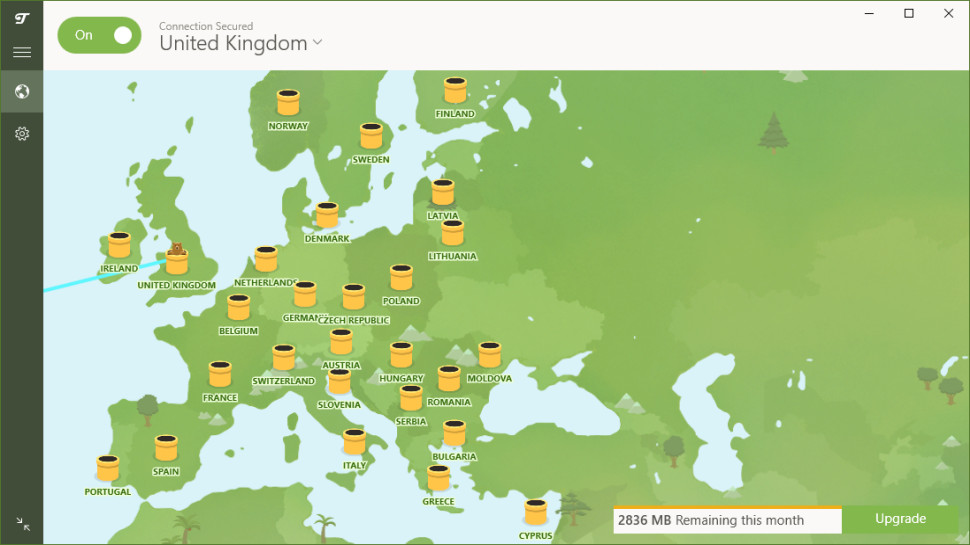
Windows and Mac apps
TunnelBear's Windows and Mac apps feature an appealing interface where the company's locations are displayed on a world map. You can click and drag to pan around the map, then click your preferred city to get connected. Alternatively, you're able to choose your city from a drop-down list, or you can just click the 'On' button and watch as the app connects to the nearest location.
We found connection times could be surprisingly lengthy, sometimes 20 seconds or more. Many VPNs (especially when using WireGuard) connect in a couple of seconds, and some are even quicker than that.
We noticed some connection issues, too, with the VPN dropping occasionally. It's not clear why, and we can't rule out the possibility that there was some temporary network or other local issue. But we test all VPNs in the same environment, and TunnelBear's connection seemed less stable than most.
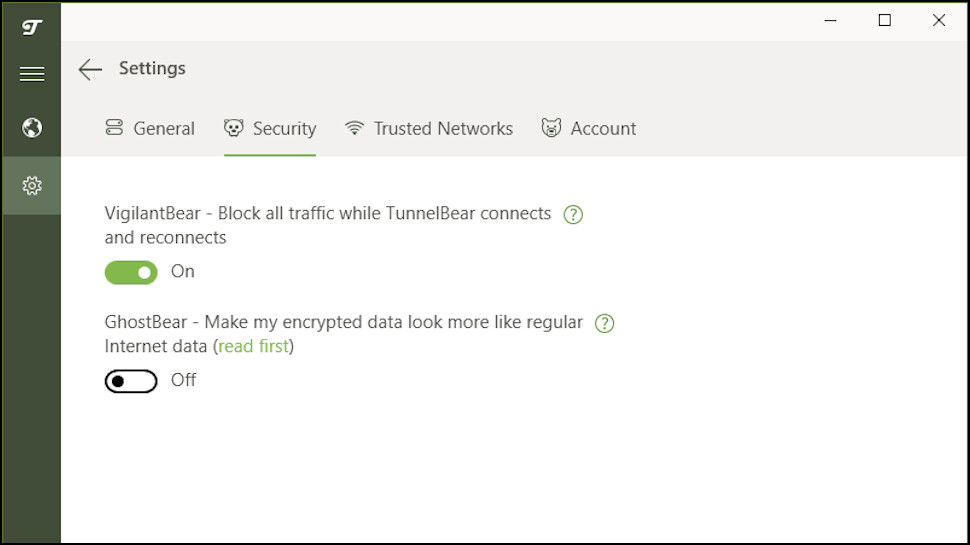
The apps have only the most essential settings: notifications, the ability to turn the kill switch on (or off), and so on. These have sensible defaults, so you may never have to explore them at all. But if you do, you'll find generally simple descriptions of what each setting does, with links to the support site for anything a little more complicated.
Our tests found the kill switch didn't always protect us fully in the most extreme situations, such as an app crash. That's useful to know, because the best apps protect us everywhere – but it's also not a major risk. It's very unlikely you'll ever see an app crash in real life, and we found TunnelBear's kill switch had no problem protecting us from common situations that might more realistically be encountered.
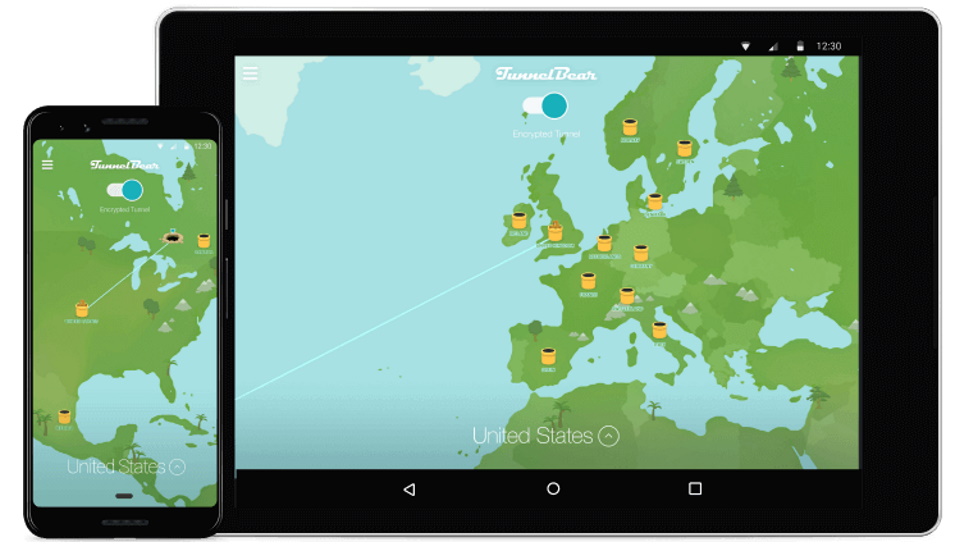
Android and iOS apps
TunnelBear's mobile apps share much the same interface as the desktop editions, and that works for us. You can choose locations from the map, a drop-down list, or have the app automatically connect to the nearest location with a tap.
We quickly noticed one surprising difference: a roaring bear sound every time the app connects or disconnects. Charming? Annoying? We're not sure, but the audio does have some practical value, by making it very clear when you're protected, and when you're not. (And if you don't need that, no problem – there's a 'Bear sounds' checkbox in Settings where you can turn the audio off.)
It's not just about the cuteness factor. The Android app also has TunnelBear's VigilantBear kill switch, the GhostBear feature to bypass VPN blocking, and even a split tunneling feature (called – you guessed it – SplitBear) to route your specified app's traffic outside of the VPN.
TunnelBear's iOS app is relatively limited, with no VigilantBear or GhostBear. You still get split tunneling, but it applies to websites, rather than apps. If a site won't allow you access when you're using the VPN, then the app allows you to route that traffic through your regular connection instead. That's not an ideal solution, as it means the VPN isn't able to protect you, but if the website isn't covering anything confidential or important, it could be a sensible option.
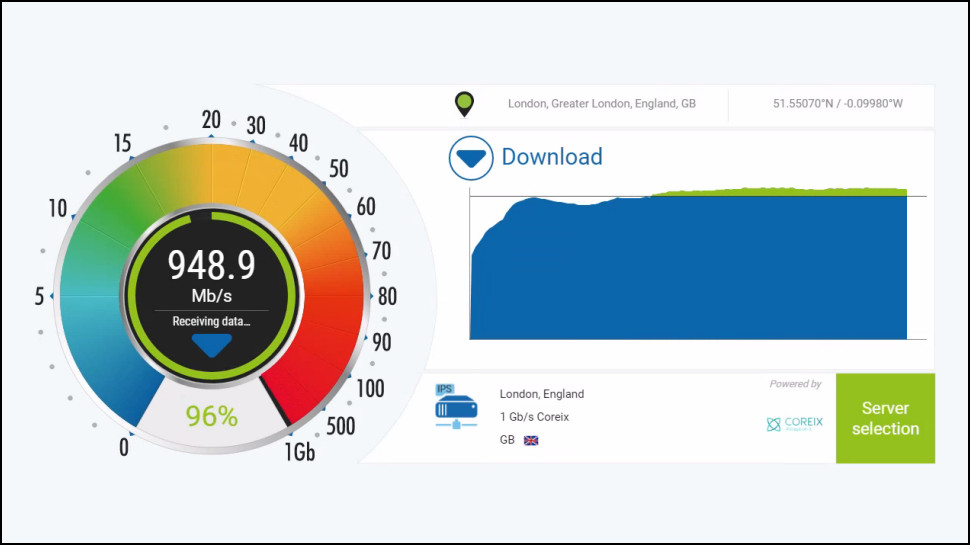
Performance
TunnelBear may not have the most powerful apps around, but does it deliver on speed? We tested the app from a UK data center with a 1Gbps connection, and the results weren't bad all, with TunnelBear averaging a decent 300Mbps.
We've seen faster free VPNs: Atlas VPN, PrivadoVPN and Proton VPN reached 320-380Mbps in their last tests. Still, TunnelBear outpaced Hide.me, Hotspot Shield, Speedify and Windscribe in our testing, and 300Mbps is a very solid result for a free product.
It was a similar story with unblocking. TunnelBear got us access to US Netflix, a major achievement which outperforms some paid VPNs. But the good news started and ended right there, with TunnelBear failing to unblock Amazon Prime Video, Disney Plus or BBC iPlayer.
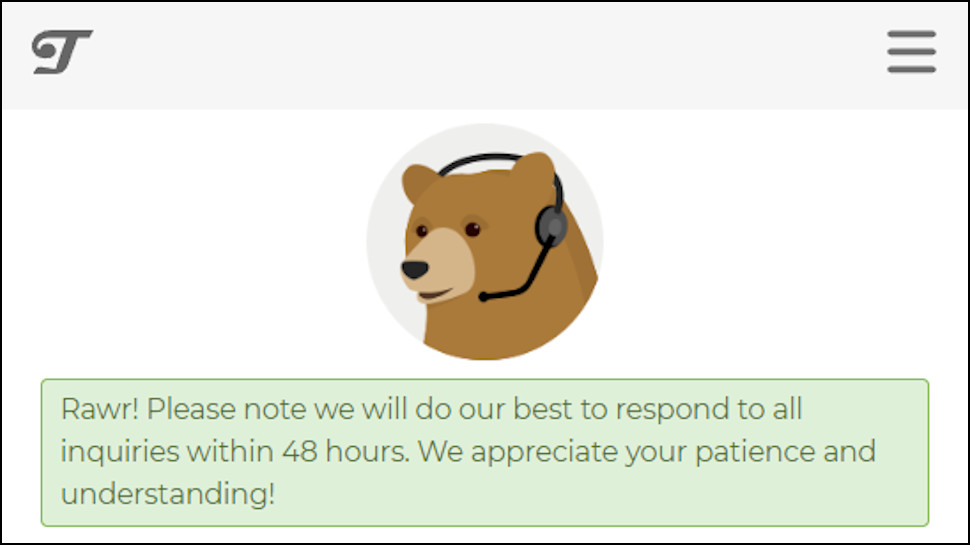
If you run into any problems with the service, you can contact support. There's no live chat, so you must raise a ticket on the website, but TunnelBear's immediate response – 'we will do our best to respond to all inquiries within 48 hours' – left us unimpressed. 'Our best' – so it could be even longer than two days?
This turned out to be a little pessimistic, though, and in fact we had a helpful reply in around 24 hours. That can't compete with the live chat support from a paid VPN plan, where you might get a first response in 24 seconds. But it's not bad for free – Hotspot Shield's free plan, for instance, has no support at all – and it's good to know there's some assistance on hand if you ever need it.
Final verdict
TunnelBear Free VPN is a decent service at heart, speedy and very easy to use. But unfortunately, the miserly 500MB per month data allowance means it's more of a demo for the paid plan rather than something you might run long-term. For very occasional users only.
- We've also highlighted the best VPN

Mike is a lead security reviewer at Future, where he stress-tests VPNs, antivirus and more to find out which services are sure to keep you safe, and which are best avoided. Mike began his career as a lead software developer in the engineering world, where his creations were used by big-name companies from Rolls Royce to British Nuclear Fuels and British Aerospace. The early PC viruses caught Mike's attention, and he developed an interest in analyzing malware, and learning the low-level technical details of how Windows and network security work under the hood.
